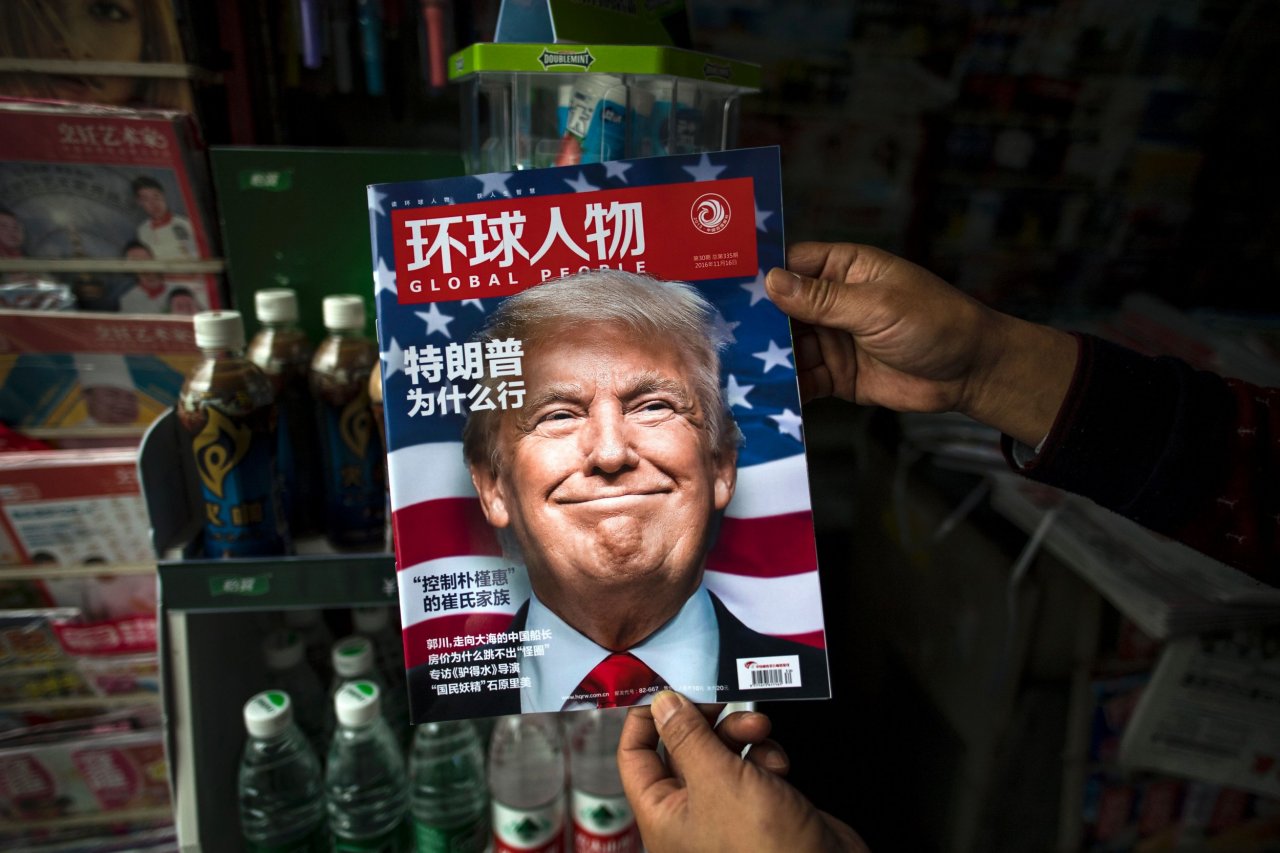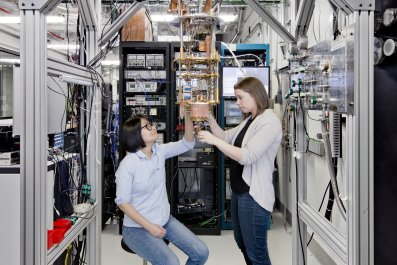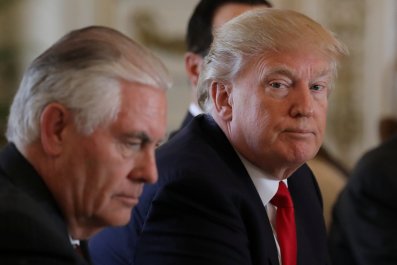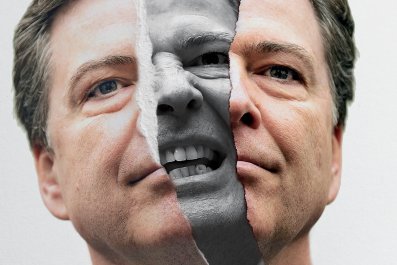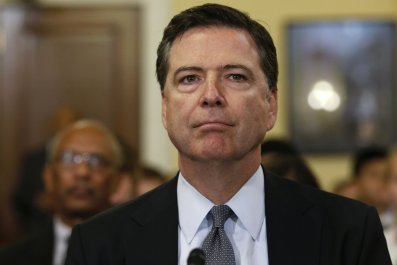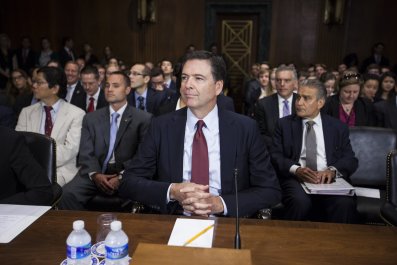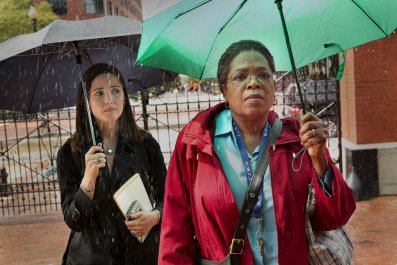In his remarkable run for the White House last year, Donald Trump talked a lot about "winning." But in his administration's initial interactions with China, it's Beijing that appears to have scored the biggest victory, when Secretary of State Rex Tillerson reiterated a talking point the Chinese have long embraced. During his inaugural visit to China last month, the new secretary described the foundations of the U.S.-China relationship as "win-win cooperation." More than three weeks after Tillerson uttered the phrase, it continues to echo in high-level foreign policy discussions here and abroad, as analysts struggle to divine the direction of what could reasonably be called the world's most important relationship.
Journalists continued to pepper the administration about Tillerson's word choice Wednesday on a State Department call previewing Chinese President Xi Jinping's first face-to-face meeting with the president, which kicks off Thursday afternoon at Trump's "winter White House," his Mar-a-Lago resort. By about the third iteration of the question, Susan Thornton, the acting assistant secretary for East Asian and Pacific affairs, was growing impatient. "I think the focus on the specific phraseology is a little bit misplaced," Thornton reiterated. "We use terms in describing our relationship with the Chinese and they use their terms."
Related: The looming nuclear crisis in North Korea
In this case, however, Tillerson was using China's terms. For Beijing, "win-win" and "mutual respect"—another slogan the secretary of state uttered in his March 18 press conference with China's foreign minister—are code for affirming China's unrivaled power in the Asia Pacific region. And while Trump and leading advisers like Tillerson, neophytes to U.S.-China relations, may toss around statements and threats without much deliberation, the Chinese take language very seriously. That is why Beijing was gloating in the aftermath of Tillerson's visit, while traditional allies were rattled.
The episode stirred further uncertainty about where Trump's China policy is headed in the leadup to the Trump-Xi summit. "I can't think of a meeting that has created so much anxiety among Asia watchers and allies alike because of the confusion," says Ambassador Derek Mitchell, who oversaw the Defense Department's security policy in Asia during President Barack Obama's first term. The rising concern among observers and diplomats: Despite all the president's tough talk and his recent warning of "a very difficult" discussion with China, his administration's naivete about how Beijing operates and his overweening desire to cut deals could leave the U.S. weaker in Asia. While few policy announcements are expected at the Florida confab, the statements and imagery coming out of Mar-a-Lago will set an important marker for what U.S.-China relations will look like over the next four years.
Beijing played a starring role in Trump's campaign trail rhetoric, as a leading villain in the real estate mogul's critique of globalization. In Trump's telling, China has been outsmarting America's inept politicians for decades, while stealing jobs from American workers through underhanded trade practices. All that would stop under his administration, he promised, with plans to label the country a currency manipulator on Day One and slap 45 percent tariffs on Chinese imports. As president, however, Trump has yet to follow through on either of those promises. And senior White House aides signaled earlier this week that neither subject will be a high priority at the summit with Xi. "We're going to leave any discussion of currency manipulation to the Department of Treasury," demurred one of the aides, during a background call with reporters.
Trump has also backed down on Taiwan, after a protocol-breaking call with the island's president, Tsai Ing-wen, in early December. That phone exchange stoked speculation that the new administration would support Taiwanese independence, violating a longstanding agreement with Beijing, which considers Taiwan its territory. But shortly after being inaugurated, Trump affirmed the so-called One China policy in a phone call with Xi in February.
While most early analysis of Trump's China policy centered on the confrontational approach favored by advisers like Steve Bannon and National Trade Council Director Peter Navarro, it's Trump son-in-law, Jared Kushner, and Tillerson who have been most instrumental in brokering the initial talks between the two governments—and smoothing over initial tensions. The Chinese had been pushing aggressively for face time with the new administration. "For all sorts of reasons, [the Chinese] want to be in the game," says Evan Medeiros, Obama's senior advisor on Asia at the National Security Council. "They want to understand what [Trump is] all about and try and use the personal relationship between the leaders to try and buffer the uncertainties." So far, Kushner, who also helped arrange Trump's early meetings with Japanese Prime Minister Shinzo Abe, has been the primary contact for the Chinese ambassador, according to sources and other news reports.
Matthew Pottinger, the lead Asia policy hand on Trump's National Security Council, has also been an important interlocutor, one that veteran Asia policymakers find reassuring. One diplomat from the region, who spoke on background in order to discuss private intergovernmental conversations, described Pottinger as "very sensible." It's unclear how much sway the NSC staffer has inside the White House, but his is one more voice in favor of the cooperative, less adversarial approach to China relations being pursued by Kushner and Tillerson. Medeiros says it would be overly simplistic to paint Trump's emerging China policy as a tug-of-war between the pragmatists and hardliners in his own administration. But if nothing else, the vacuum in actual policy has allowed that narrative to take hold. "No one seems to know anything" about specific policy goals, says the regional diplomat.
The White House has affirmed that trade and North Korea's advancing nuclear program will be the two top agenda items at the Mar-a-Lago meetings. Neither subject, in and of itself, is particularly controversial. There's broad agreement among U.S. foreign policy analysts and traditional allies that China, North Korea's main economic lifeline, needs to get tougher on its neighbor, given Pyongyang's increased tempo of missile launches. Likewise, China's trade violations have long been a point of contention for the United States, and according to the diplomat, there is plenty of room for Trump to "get tough in the international trade space" without going so far that it starts a trade war, as Navarro and some other Trump advisers have pushed. "I think what Trump is saying about Chinese trade violations needs to be said. I think what he's saying about China and North Korea needs to be said," says Republican Senator Lindsey Graham, a frequent Trump critic. "I'm glad he's meeting with the Chinese."
Aides have been vague, however, about how, specifically, Trump is looking to address those issues, or how strongly he will press Xi on either front. "I can't tell you whether they're going to get into specific issues to resolve at this time," one said on this week's call with reporters. "The topics have not been scripted out in advance." That's a departure from past presidents. Diplomatic summits at this level usually are extremely scripted, foreign policy veterans say, with the outcomes of the meetings determined well before the leaders ever get in the same room. The most defined U.S. goal for Trump and Xi's first sit-down is to develop a framework for future discussions.
The free-wheeling approach is sure to keep China guessing—and make the protocol-loving government in Beijing nervous. But some observers worry that the lack of formality could ultimately work against the United States. "Uncertainty and ambiguity in international relations…cuts both ways," cautions Medeiros, who became managing director at the global risk consulting firm Eurasia Group after leaving the White House. A little bit of elusiveness makes negotiating partners "feel as though they need to be invested in making progress, but you don't want them to feel so uncertain that your commitments lack credibility," he says.
The fear is that the new administration is facing off against a highly prepared, unified Chinese delegation. And without the proper deliberation, Trump could make promises he can't keep, or latch onto offers from Beijing without realizing all the consequences. There's a sense that "these guys don't know what they don't know," says Mitchell, now senior adviser to the Asia Program at the U.S. Institute of Peace in Washington. Aides like Kushner and Tillerson, inexperienced in the nuances of U.S.-China relations, may think they're being clever and stirring things up, he warns, but their single-minded pursuit of a trade or investment deal could lead them to "blunder into a concession that will be very difficult to reverse."
Trump's shifting stance on Taiwan is evidence of that dealmaking mindset. Initially, the president framed U.S. policy on the island as something up for negotiation with Beijing, a sort of bargaining chip to play to advance his top priority—trade concessions. He backtracked after blowback from both countries. But it was enough to make other countries in China's backyard nervous, particularly after Tillerson's talk of a "win-win" relationship seemed to signal the United States might grant Beijing free rein in the region. "The region doesn't want to be viewed as simply a tool of U.S.-China policy," says Mitchell.
Plenty of foreign capitals will be tuned in, then, for Trump and Xi's anticipated public remarks, as well as the readouts provided by both governments from Florida—even visuals of the two men's body language. The substance may be limited, but the symbolism still matters deeply for Asia policymakers trying to make sense of America's future role in the region.
As they're all too aware, sometimes a professed win-win is actually a loss.



